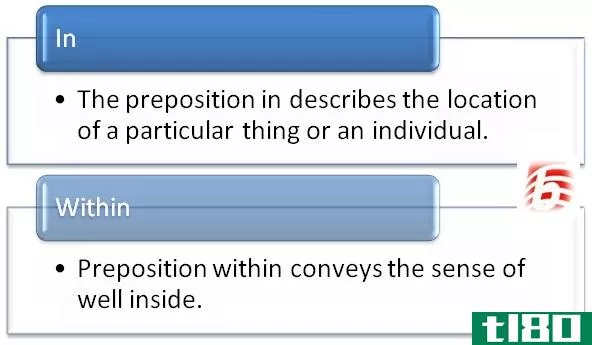如何用英语表达未来时间(express future time in english)
据传说,法国语法学家多米尼克·鲍霍斯的最后一句话是“jevais ou Je vas mourir;l'un et l'autre se dit,ou se disent”。在英语中,这是“我将要死,或者我将要死。两种表达方式都可以使用。”

用英语表达未来的六种方式
碰巧,英语中也有多种表达未来时间的方式。以下是六种最常用的方法。
- 简单的礼物:我们今晚动身去亚特兰大。
- 现在的进步:我们把孩子留给路易斯。
- 情态动词will(或shall)与动词的基本形式:I’ll leave you some money。
- 情态动词will(或shall)与进行式连用:我给你留张支票。
- 不定式的一种形式:我们的航班是晚上10点起飞。
- 半助词,如动词的基本形式to to或to to:我们要给你父亲留个便条。
对将来时态的观察
但是时间与语法时态并不完全相同,考虑到这一点,许多当代语言学家坚持认为,正确地说,英语没有将来时态。
- “[M]从形态上讲,英语没有动词的未来形式,此外,还有现在和过去的形式……因此,在这个语法中,我们不把未来作为一个形式范畴来讨论……”(Randolph Quirk等人,《当代英语语法》,朗文,1985年)
- “我们不承认英语中的将来时态……这里没有一个语法范畴可以正确地分析为将来时态。更具体地说,我们认为will(和shall)是语气的助词,而不是时态。”(罗德尼·赫德尔斯顿和杰弗里·普勒姆,《剑桥英语语法》,剑桥大学出版社,2002年)
- “英语动词没有像其他语言那样的将来时态结尾……”(罗纳德·卡特和迈克尔·麦卡锡,《剑桥英语语法》,剑桥大学出版社,2006年)
- “英语没有将来时态,因为它没有将来时态的变化,就像许多其他语言一样,也没有任何其他语法形式或形式组合,只能称为将来时态。”(Bas Aarts,《牛津现代英语语法》,牛津大学出版社,2011年)
这种对未来时态的否认可能听起来自相矛盾(如果不是完全悲观的话),但核心论点取决于我们标记和定义时态的方式。我会让David Crystal解释:
How many tenses of the verb are there in English? If your automatic reaction is to say "three, at least", past, present, and future, you are showing the influence of the Latinate grammatical tradition. . . . [I]n traditional grammar, [t]ense was thought of as the grammatical expression of time, and identified by a particular set of endings on the verb. In Latin there were present tense endings . . ., future tense endings . . ., perfect tense endings . . ., and several others marking different tense forms. English, by contrast, has only one inflectional form to express time: the past tense marker (typically -ed), as in walked, jumped, and saw. There is therefore a two-way tense contrast in English: I walk vs I walked: present tense vs past tense. . . . However people find it extremely difficult to drop the notion of "future tense" (and related notions, such as imperfect, future perfect, and pluperfect tenses) from their mental vocabulary, and to look for other ways of talking about the grammatical realities of the English verb. (The Cambridge Encyclopedia of the English Language. Cambridge University Press, 2003)因此,从这个角度来看(请记住,并非所有语言学家都完全同意),英语没有将来时态。但这是学生和教师需要关注的问题吗?考虑Martin Endley对EFL教师的建议:
[T]here is no harm done if you continue to refer to the English future tense in your classroom. Students have quite enough to think about without being troubled by such matters and there is little sense in adding to their burden needlessly. Yet, underlying the dispute is an important issue that does have an obvious bearing on the classroom, namely, the difference between the way the present and past tenses are marked on the one hand, and the way the (so-called) future tense is marked on the other. (Linguistic Perspectives on English Grammar: A Guide for EFL Teachers. Information Age, 2010)幸运的是,英语确实有未来,有很多表达未来时间的方式。
- 发表于 2021-09-21 05:38
- 阅读 ( 260 )
- 分类:语言
你可能感兴趣的文章
在里面(in)和英语语法中的内部(within in english grammar)的区别
...”的额外含义。 在里面(in)和英语语法中的内部(within in english grammar)的区别 如前所述,介词in描述一个特定事物或个人的位置,而in介词则表达内心深处的感觉。更重要的是,in和within这两个词在与其他词不同使用时会产生不同...
- 发布于 2020-10-17 01:57
- 阅读 ( 386 )
喜欢(like)和喜欢英语语法(would like in english grammar)的区别
关键区别——英语语法中的Like vs Would Like Like和Would Like是英语中的两种用法,它们之间有一些相似之处,但更大程度上有所不同。首先让我们把注意力集中在like这个词上。当我们想表达我们喜欢做某事的想法时,通常使用...
- 发布于 2020-10-23 21:44
- 阅读 ( 230 )
将来(in future)和未来(in the future)的区别
...了解将来和将来的区别有助于你在将来和将来正确地使用英语。根据《牛津英语词典》,将来的意思是从现在开始。将来的表达也有类似的意思。将来和将来都表示将来的时间。如果你看将来和将来的表达,第一个引起你注意的...
- 发布于 2020-11-06 13:11
- 阅读 ( 517 )
通过(through)和在期间(during)的区别
...在夜里听到一声巨响。‘During’ can be used to indicate a time expression either at the first or last of a length in time.例如:在第二次世界大战期间,许多无辜平民死亡。During’ can be used in a sentence only before nouns and not before verbs.例如:错误的句...
- 发布于 2021-07-11 11:29
- 阅读 ( 436 )
英语:历史、定义和示例
...期日泰晤士报》(The Sunday Times)的《英语改变生活》(English Changes Lifes)中提到了一项较早的估计,“现在估计全球有15亿人说英语:3.75亿人以英语为第一语言,3.75亿人以英语为第二语言,7.5亿人以英语为外语。” "The elites ...
- 发布于 2021-09-06 00:36
- 阅读 ( 211 )
如何用法语表达感叹词(express exclamations in french)
感叹词是表达愿望、命令或强烈情感的词或短语。有各种各样的法语语法结构可以用作真正的感叹词。 它们都以感叹号结尾,最后一个单词和感叹号之间总是有一个空格,就像其他几个法语标点符号一样。 感叹号是法语中...
- 发布于 2021-09-08 13:52
- 阅读 ( 259 )
如何用日语表达你的想法(express your thoughts in japanese)
在表达思想和感情方面,每种语言都有细微的差别。刚开始说日语的人可能不需要马上完全掌握这些概念,但如果你希望流利地交流,那么当你需要说出自己的想法时,了解哪些动词和短语最准确是很重要的。 动词“to oumu”...
- 发布于 2021-09-10 23:45
- 阅读 ( 345 )
古英语和盎格鲁撒克逊语
...ally disappeared. The grammatical information that they signaled had to be expressed using different resources, and so the nature of the English language began to change. New reliance was put on the order of words and on the meanings of little grammatical words like to, with, in, over, and around."...
- 发布于 2021-09-14 07:34
- 阅读 ( 347 )
如何用英语表达悲伤(express sadness in english)
有些日子不如其他日子好,事实上,有时你可能会感到悲伤。学习如何表达你的感受对你的日常生活非常重要。掌握正确的词汇可以帮助你度过悲伤,也可以让别人知道你的感受。它还将帮助你学会当别人不开心时该说什么。 ...
- 发布于 2021-09-24 19:31
- 阅读 ( 278 )
什么是英语语法中的加强词?(intensifiers in english grammar?)
...d somewhat, which both go back to Late Middle English, whereas the phrasal expressions sort of and kind of are more recent."—From "Three Perspectives on Grammaticalization" by Terttu Nevalainen 助推器与语言变化 "Humans are indeed natural-born exaggerators, and this trait is one of th...
- 发布于 2021-09-25 03:13
- 阅读 ( 320 )















